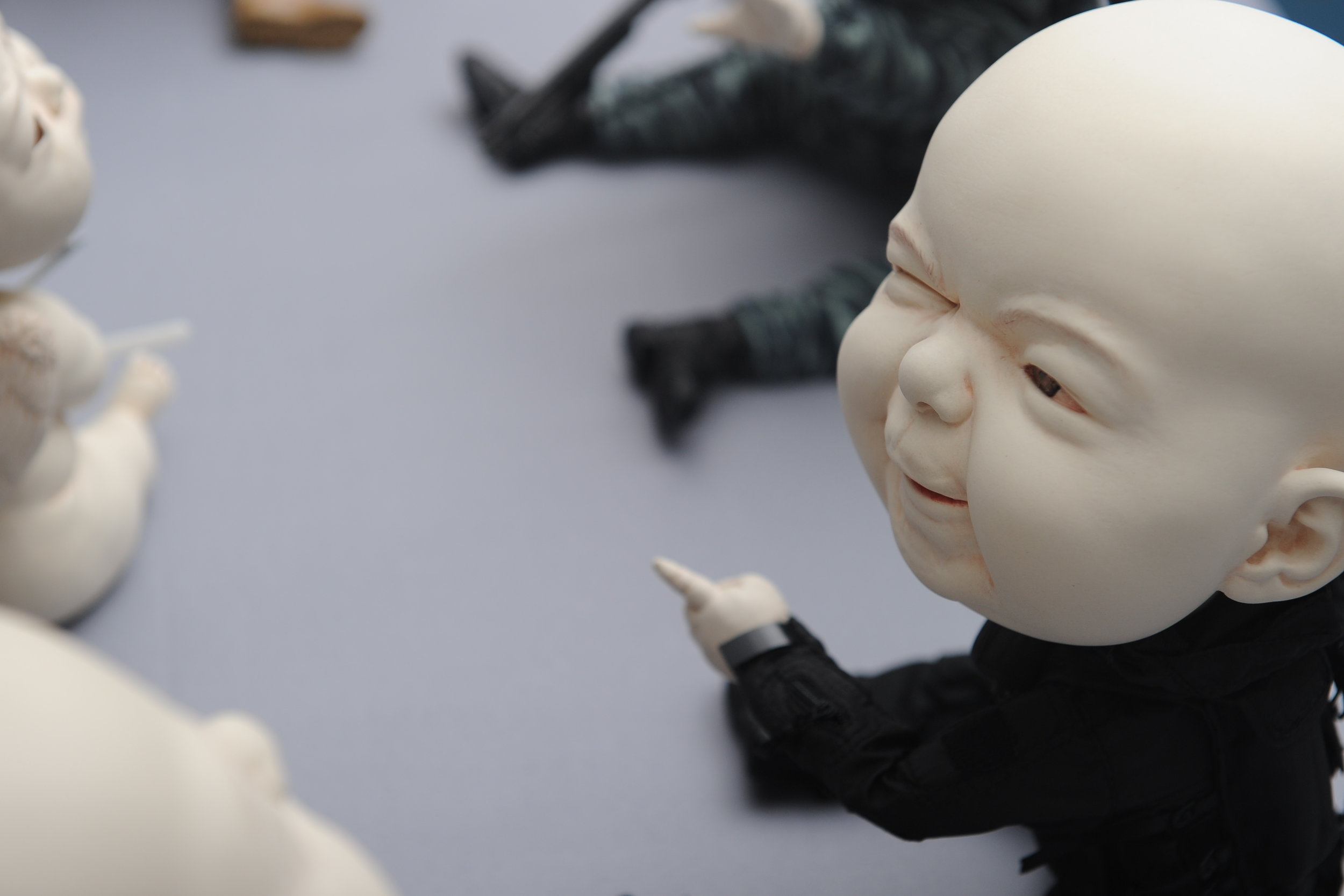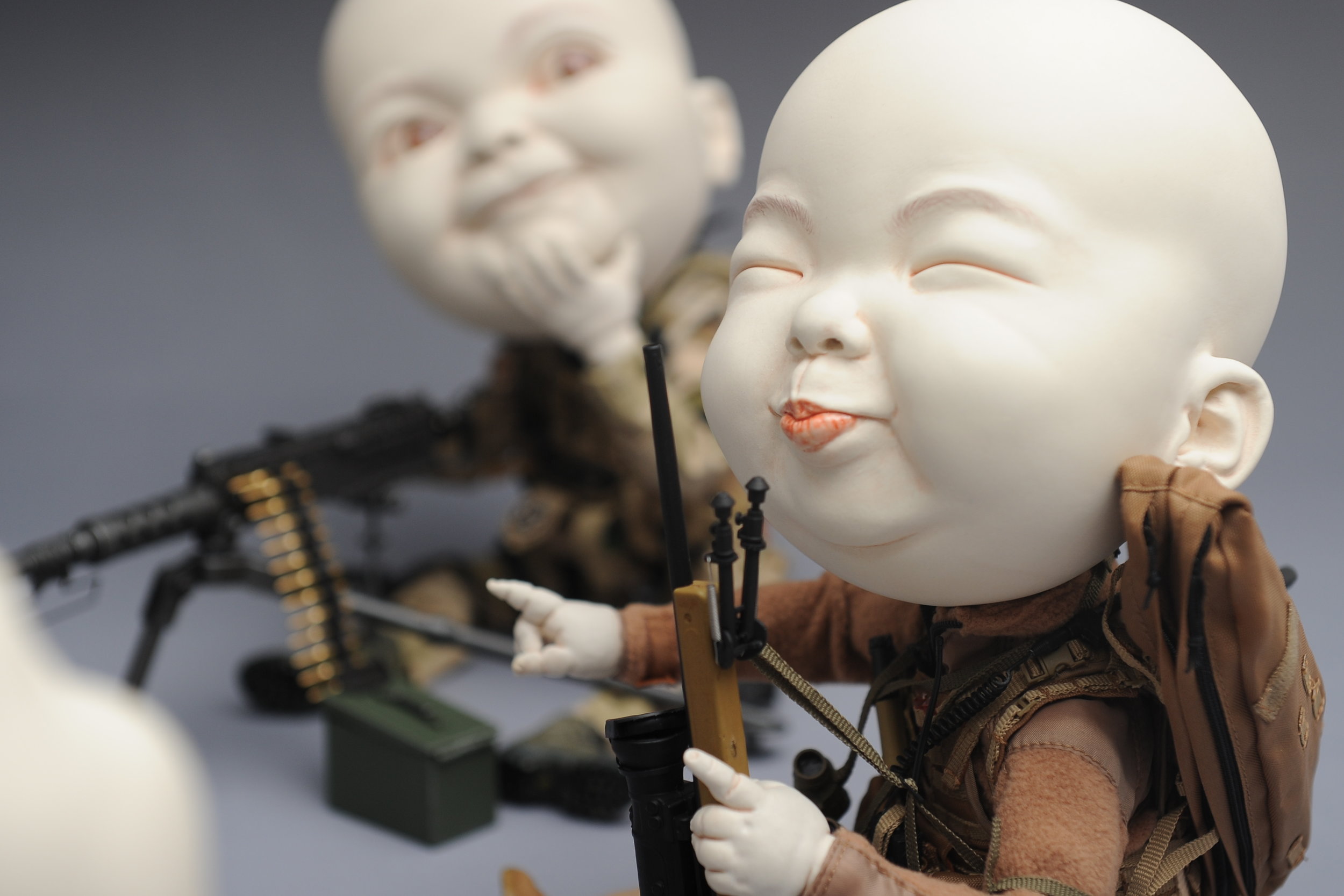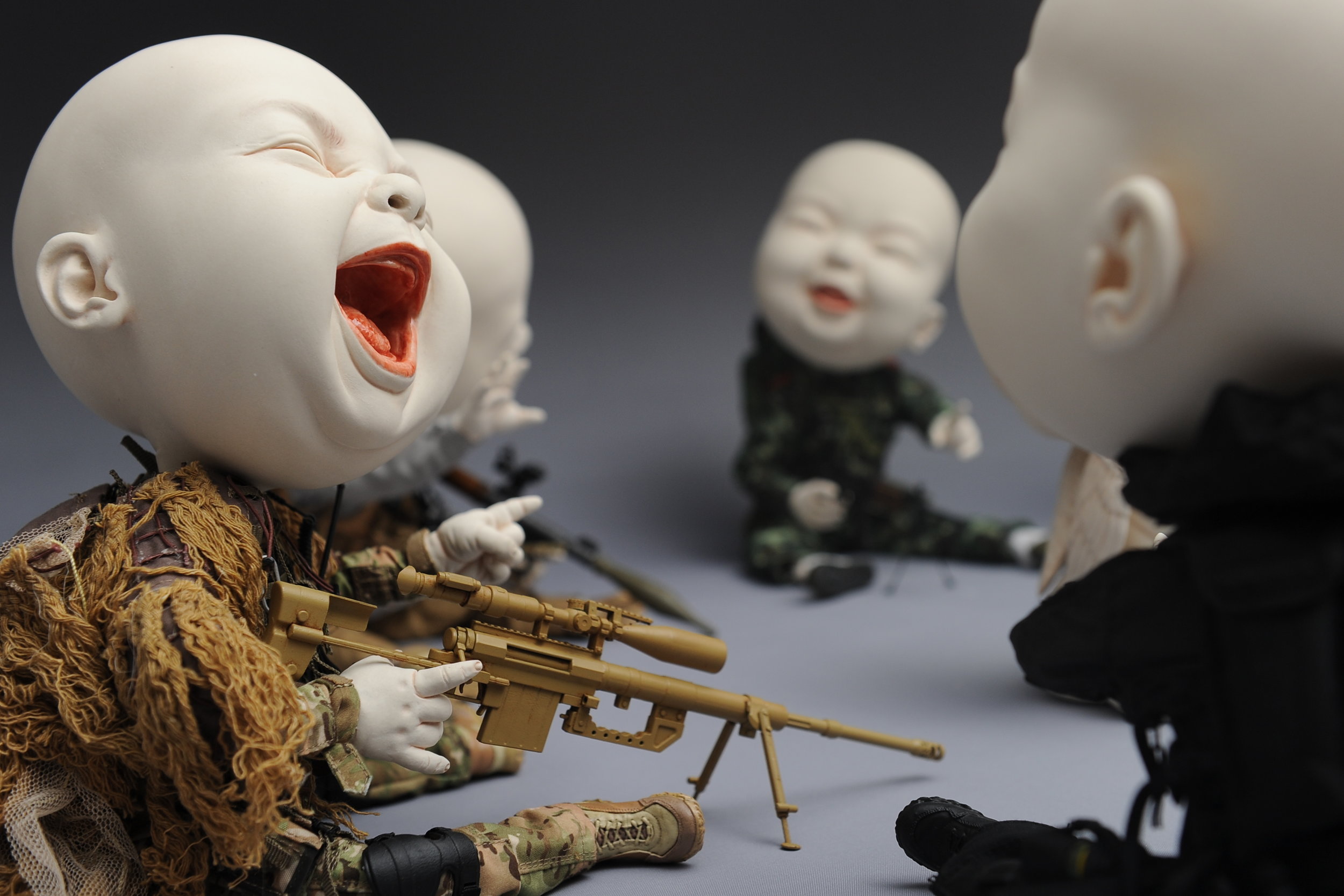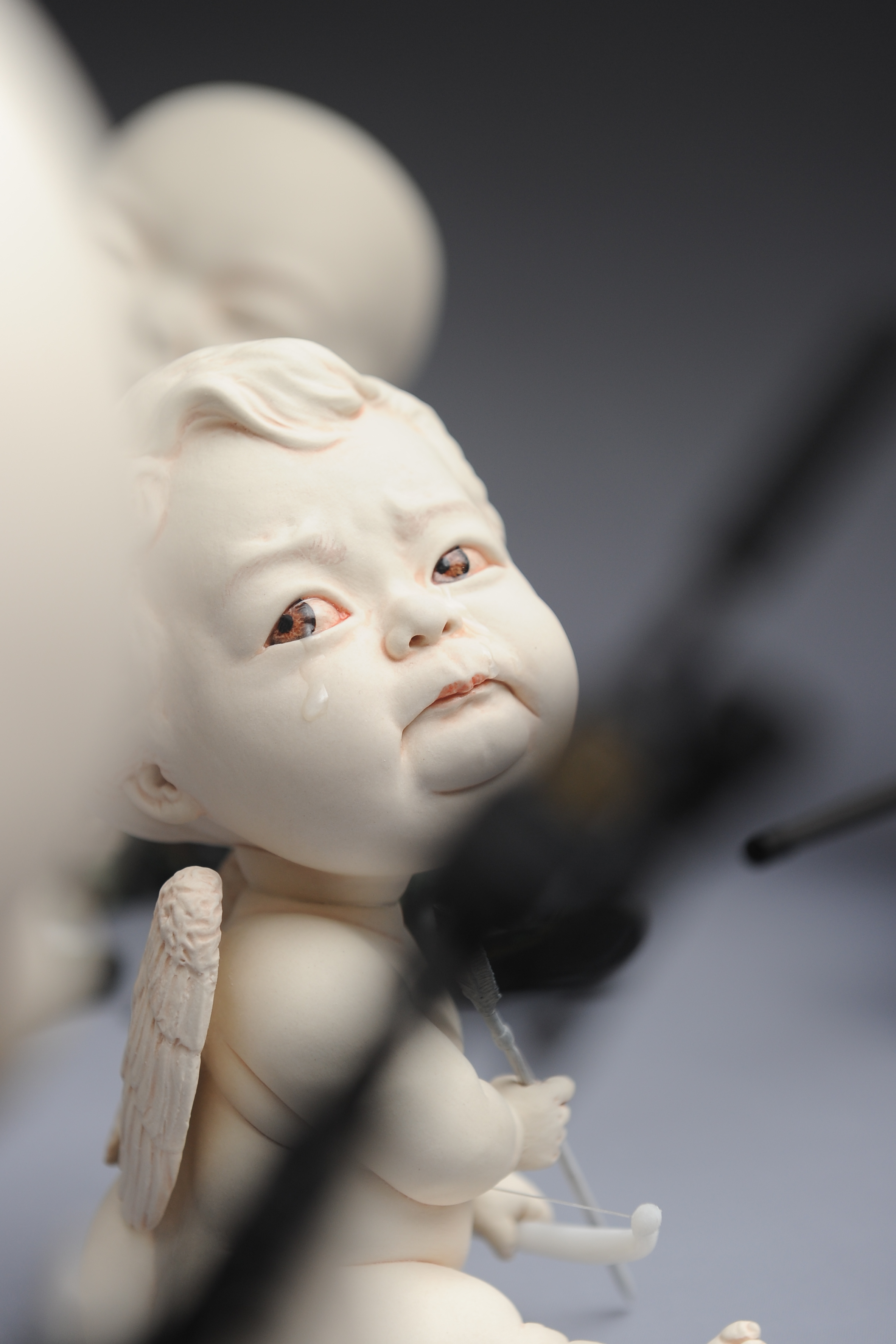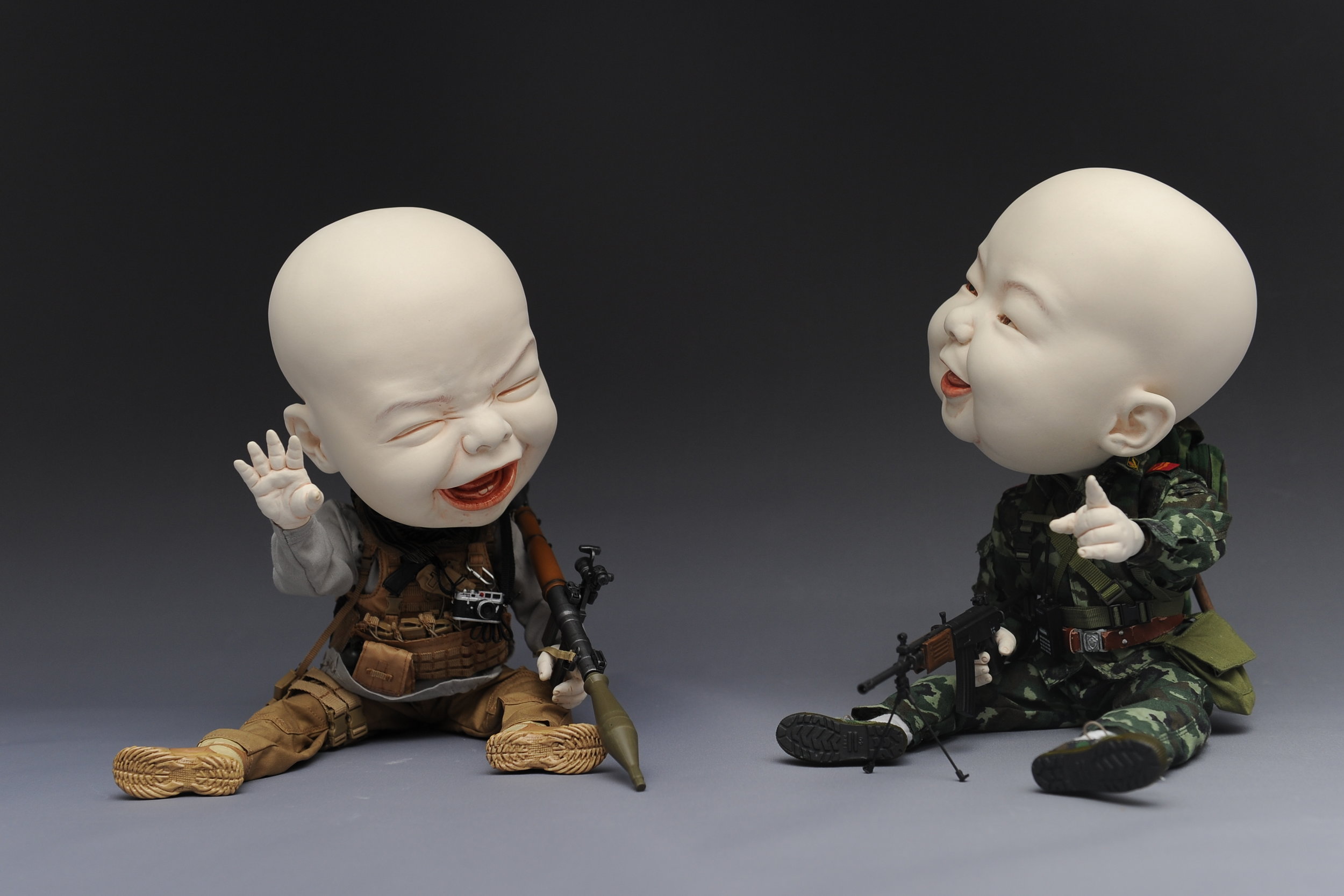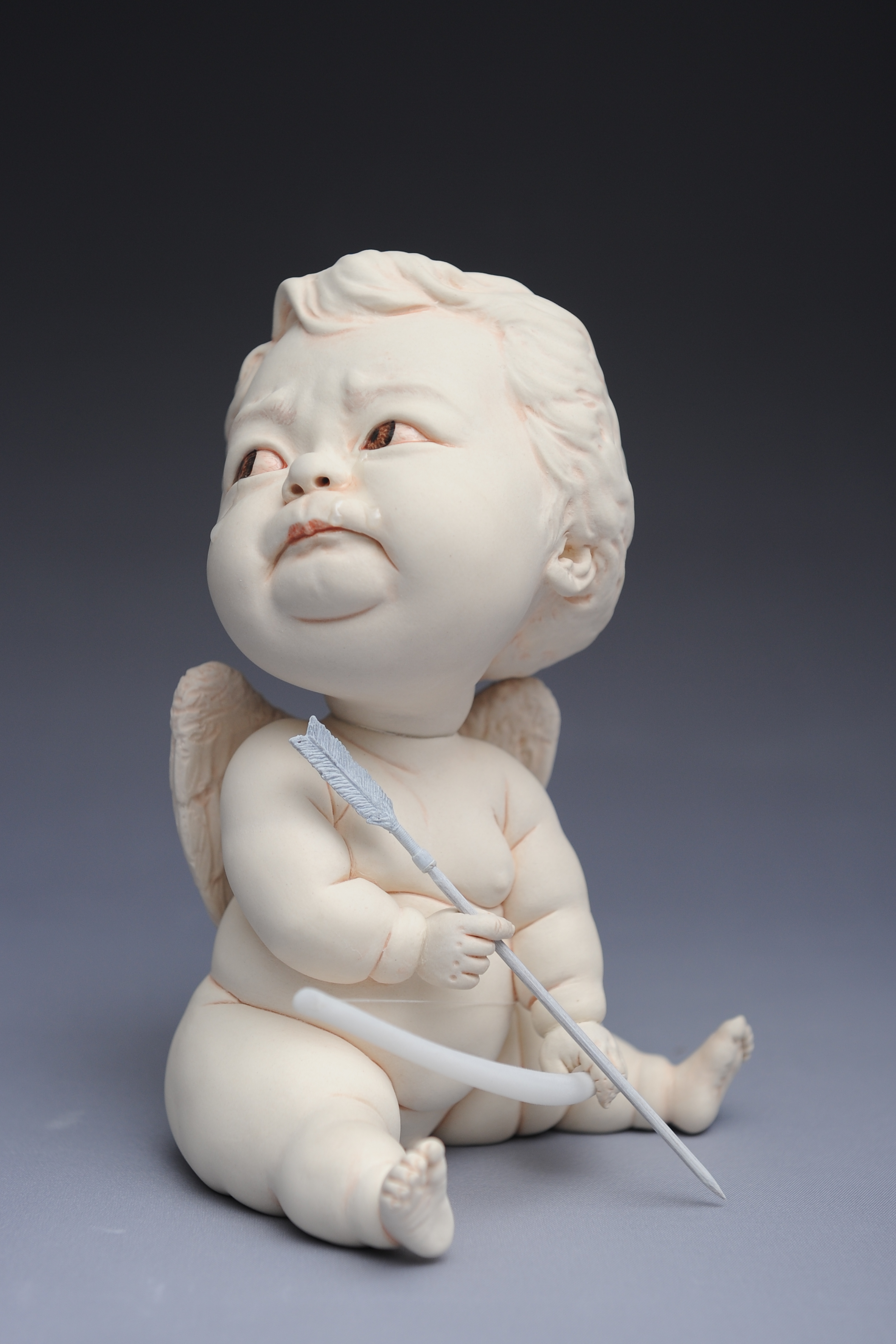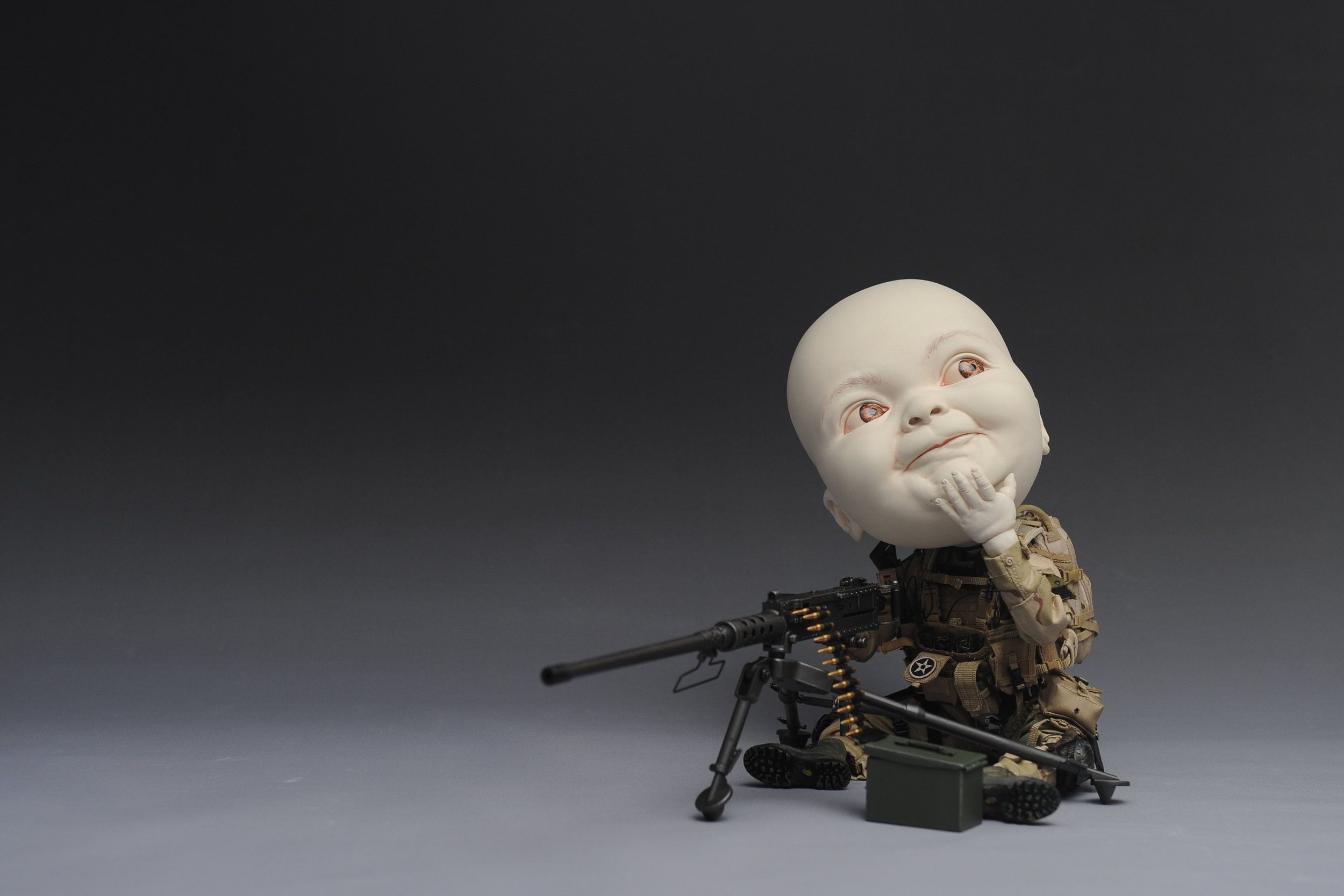Interesting Artworks: ‘Security Summit’ by Johnson Tsang
Johnson Tsang is an established sculptor based in Hong Kong. His ‘Security Summit’ is composed of eight porcelain sculptures. One ‘putto’ or naked cherub sits in the centre, crying; seven others surround him carrying baby-sized machine guns. The putto is armed with only a bow and arrow. He’s no match for their modern weaponry. He’s surrounded and unable to react to the bullying of those around him. Tsang crafts a single tear running down his chubby cheeks. The effect is richly symbolic: the cherub may be interpreted as the symbol of love; his nakedness a sign of vulnerability; the figures’ appearances as a commentary on immaturity.
Tsang’s putto is borrowed from classical and neo-classical sculpture. However, the figure is then placed in a provocative and contemporary context. The ‘putto’ is surely the centre of attention. And yet, the scene is dynamic. The viewer’s attention follows the circular arrangement of the little soldiers. It then follows their body-language. It then moves centripetally toward the putto. It then follows the putto’s gaze by moving centrifugally toward the surrounding ring of baby-soldiers. None of them interact with the viewer. Instead, they’re simply enjoying the sight of the crying putto. Their exaggerated laughs and facial expressions evoke bitter-frightening and disturbing feelings in us…just like nightmares.
Tsang started teaching pottery classes for children in 2005. In an interview with ‘BEINART’ Tsang recalls telling himself ‘to go back to the age of a child. Then I became one of them, enjoying the classes. My inner child kept visiting me from time to time, especially when I created my own art. I believe that sometimes I wasn’t the one creating my works. My works depicting babies were expressing my point of view to the world through the eyes of a child—my inner child.’
Giovanni Pascoli’s poem, ‘Il Fanciulino’ (1897) famously declares that there is a small inner child in every one of us. ‘Quando la nostra età è tuttavia tenera, egli confonde la sua voce con la nostra,’ which means that our voices are initially intertwined. ‘Ma quindi noi cresciamo, ed egli resta piccolo; noi accendiamo negli occhi un nuovo desiderare,’ but as we grow older, our inner-child remains young. ‘[N]oi ingrossiamo e arrugginiamo la voce’ and our voices deepen. In a poetic turn of phrase, our voices not only deepen but ‘rust’ as ‘arruginire’ from ‘ruggine’ implies that while our own voices become rusty, we also become rusty at recognising or using the voice of our inner child. His voice is still there. However, we’re too caught up in life to hear from whence it rings... ‘[M]eno badiamo a quell’angolo d’anima d’onde esso risuona…’ For Pascoli, the voice of il fanciulino is the font from which art and poetry springs. Pascoli’s ‘fanciulino’ and Tsang’s ‘inner child’ are, perhaps, not so different from one another. And yet, there is another possible interpretation of the latter’s artwork.
If Pascoli’s child is the font of poetry; then Freud’s poetry is darker and fundamentally ambivalent. It’s a very different poetry of love and hate. Children are completely egoistic; they feel their needs and strive ruthlessly to satisfy them’[1], says Freud. This is because they’re not yet under the sway of the reality-principle. Instead, they are driven by the imperatives of the pleasure principle. Children are therefore given to the ‘id’ before the ‘ego’ or ‘super-ego’. Tsang’s ‘Security Summit’ might reflect Pascoli’s il fanciulino in its creative principle; it also reflects Freud’s darker imagination in its content. Nonetheless, there’s something darkly sociable about the baby-soldiers. Of course, they’re cruel, malicious, and unkind; but they also share in this collective cruelty, maliciousness, and unkindness.
The countless international summits that appear in the newspapers are supposed to formulate our International Law. Yet, in ‘Security Summit’, such Law is given over to the hands of immature children. Tsang seems to be criticising the childish ways of our supposedly adult leaders. As always, it’s love and other children who bear the brunt of the resulting misfortunes. Finally, one can return to Pascoli. Isn’t ‘Security Summit’ something of a mise-en-scène in which the voice of our inner-child is derided by the hardnosed pragmatism of ‘realpolitik’ and thus eventually forgotten. Only to reveal that such hardnosed pragmatism and such ‘realpolitik’ is the most childish politics of all. It’s worth remembering to listen lest ‘meno badiamo a quell’angolo d’anima d’onde esso risuona…’
[1] Sigmund Freud, The Interpretation of Dreams in The Standard Edition of the Complete Psychological Works of Sigmund Freud, Volume IV (1900), trans. by James Strachey, (London: Vintage Books, 2001), p.250

